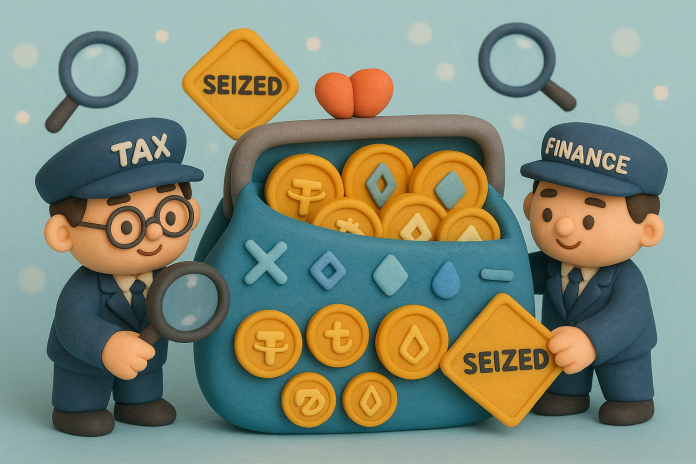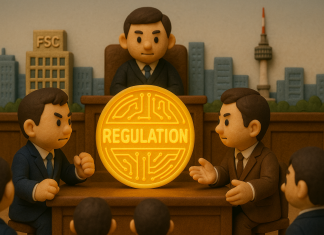
The Korean government has decided to significantly strengthen its oversight of cryptocurrency assets as more debtors exploit debt relief programs to conceal their digital wealth. As applications for debt restructuring surge amid high interest rates and an economic slowdown, cases of “moral hazard,” where individuals hide assets and still obtain debt write-offs, have emerged as a growing social issue.
The Financial Services Commission and the Financial Supervisory Service, in cooperation with the National Tax Service and the prosecution, plan to launch a joint task force that will begin comprehensive investigations this year. The probe will cover all digital assets, including crypto exchange accounts, NFTs, and digital wallets. Authorities will establish real-time information sharing systems with major domestic exchanges to verify debtors’ holdings in detail during the screening process.
According to the FSS, the number of debt restructuring cases among vulnerable borrowers exceeded 140,000 last year, the highest on record, while 28% of beneficiaries reapplied within three years of receiving relief. With the sharp fluctuations in cryptocurrency prices, regulators have noted more cases where debtors underreport or hide their assets to receive benefits. A financial industry official said, “When Bitcoin and Ethereum prices soared, some debtors liquidated holdings and effectively used the debt discharge system to launder wealth.”
The government plans to consider immediate seizure or preservation measures if crypto holdings above a certain scale are detected and will tighten the debt relief screening process. The National Tax Service will cooperate with blockchain analytics firms to trace transaction flows and apply enforcement measures such as account freezes and fines against habitual defaulters.
At the same time, authorities will maintain support measures like repayment deferrals, interest reductions, and small financial assistance to help genuine low-income debtors recover. However, all benefits will be subject to thorough asset verification and screening, and crypto assets will be explicitly included in mandatory disclosure requirements.
The Korea Institute of Finance warned, “Conflicts between cryptocurrencies and debt restructuring programs are likely to intensify,” and emphasized the need for stricter reporting obligations and real-time monitoring. The government will conduct a pilot program in the second half of this year to test the system and plans to make crypto asset inquiries mandatory throughout the debt relief process starting next year. Whether this policy can curb moral hazard involving cryptocurrencies while supporting vulnerable borrowers’ recovery remains to be seen.






